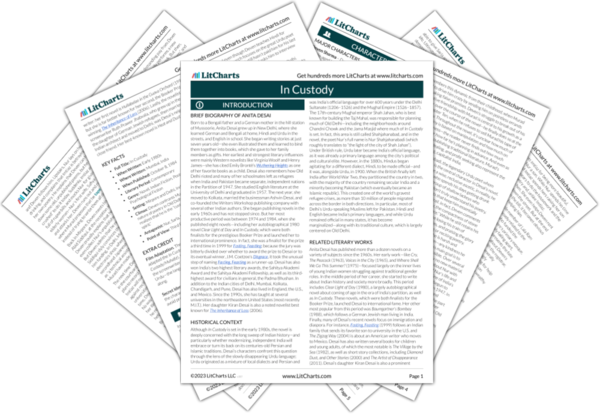The chaos of the Chandni Chowk bazaar floods into Nur’s house, turning the scene upside down and challenging Deven’s expectations about Nur. Specifically, Deven is surprised to see someone he views as sacred (the great poet Nur) in a situation he views as profane (a boisterous crowd of ordinary Indians, who seem to lack his reverence for Nur and his work). But given that Nur takes him outside, it seems that Nur finds the crowd bothersome, too. When Nur gets angry at Deven for forgetting his pillow, this frustrates Deven because Nur seems to have suddenly forgotten the beauty of poetry—and their shared love for it. Indeed, Nur’s health concerns humanize him, showing that he’s no different from any other old man. But Deven doesn’t want to see Nur, his idol, as human—instead, he long imagined Nur as superhuman, a kind of vessel for divine intelligence, who dedicated his every thought, action, and minute to poetry.
